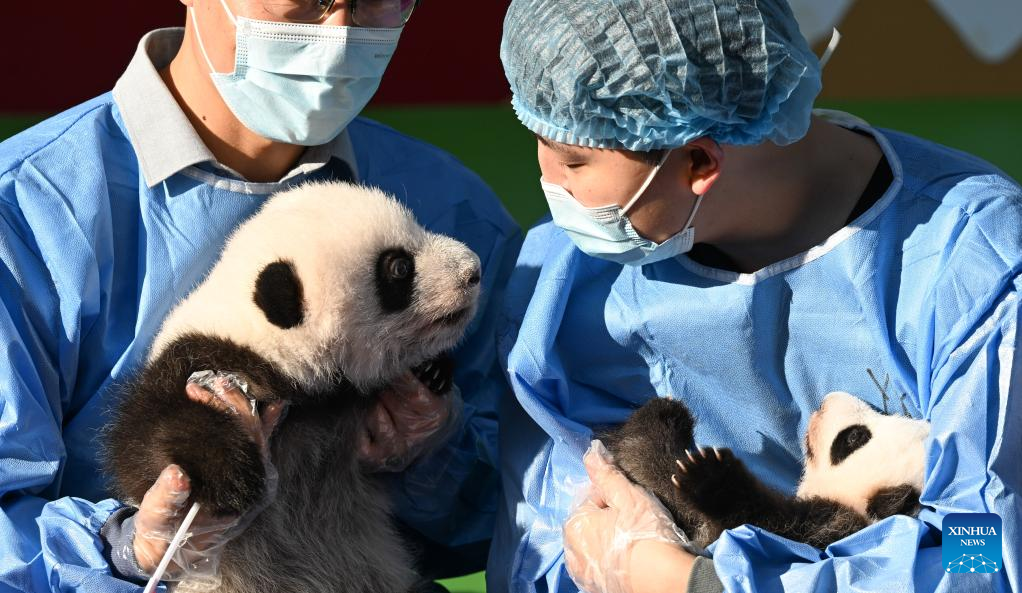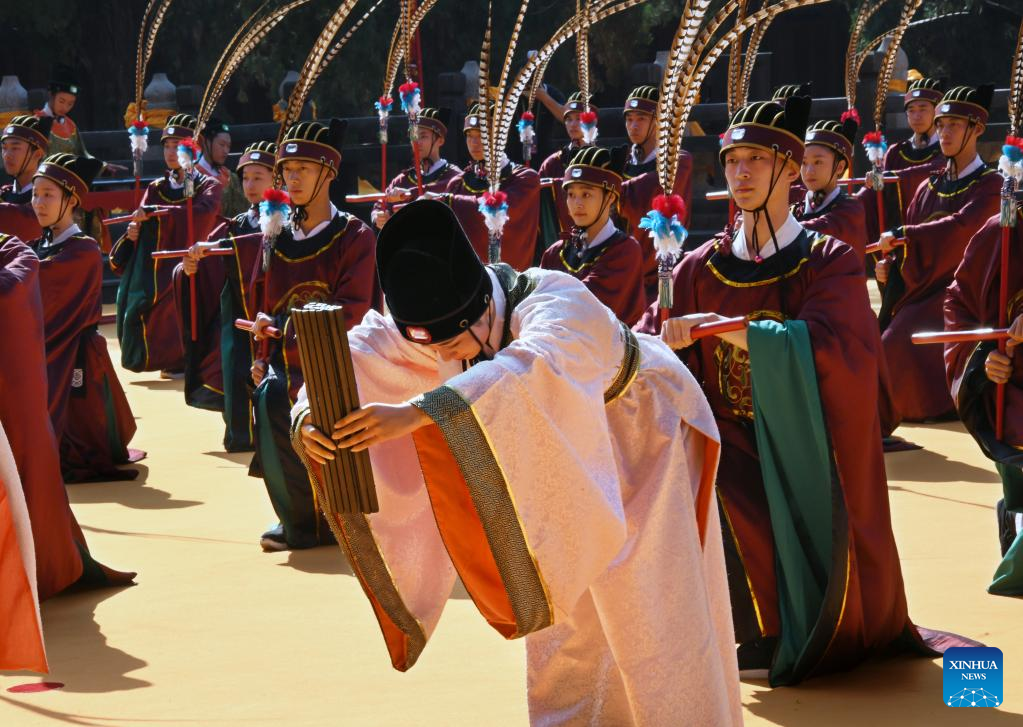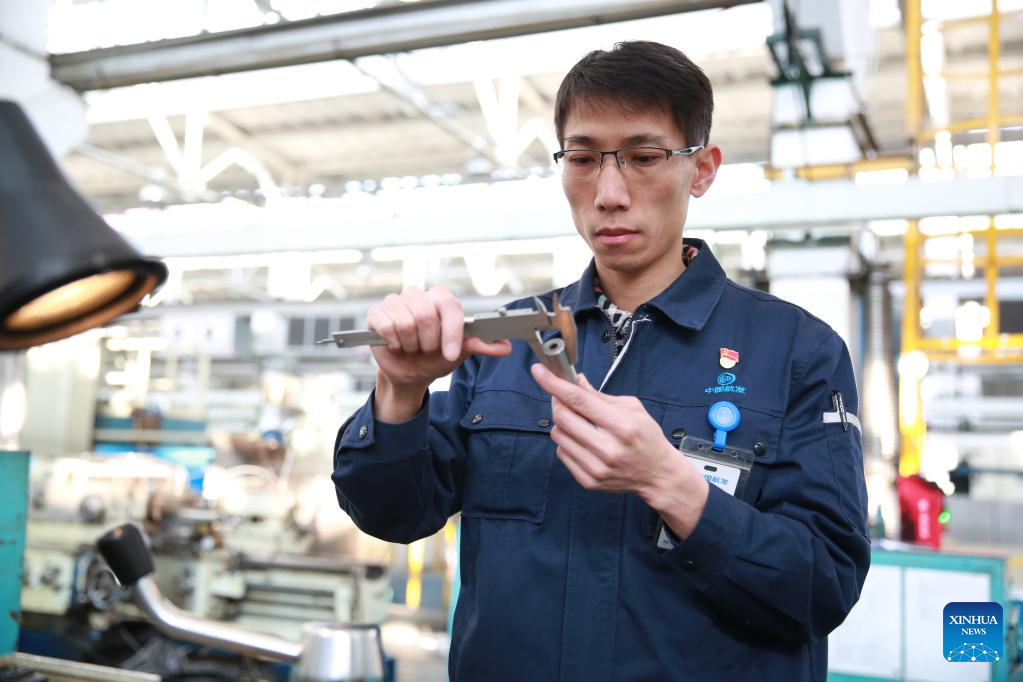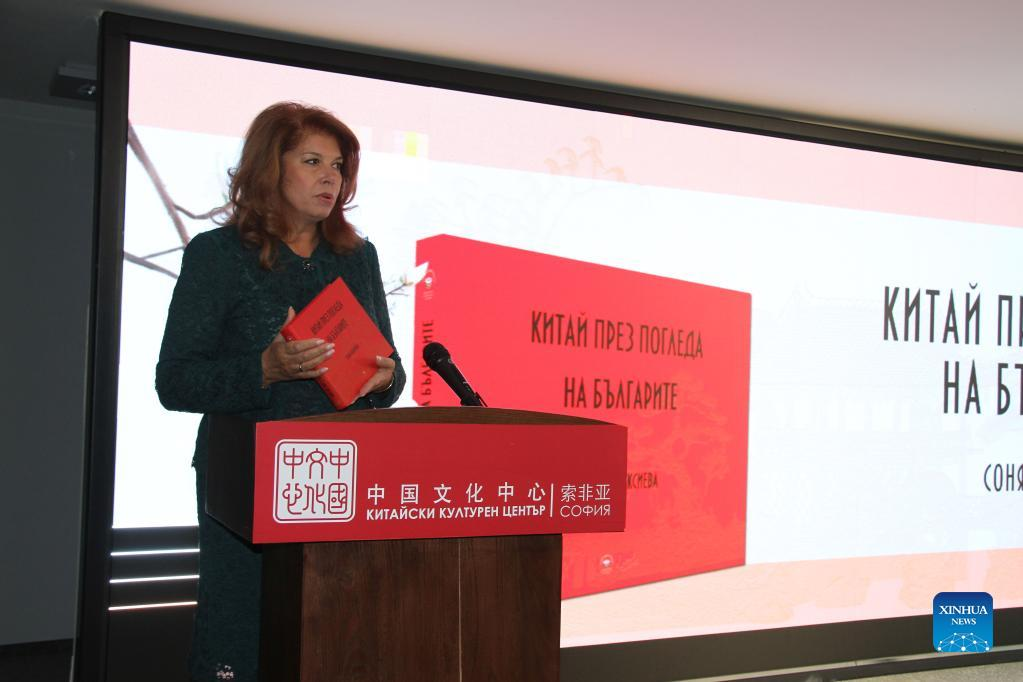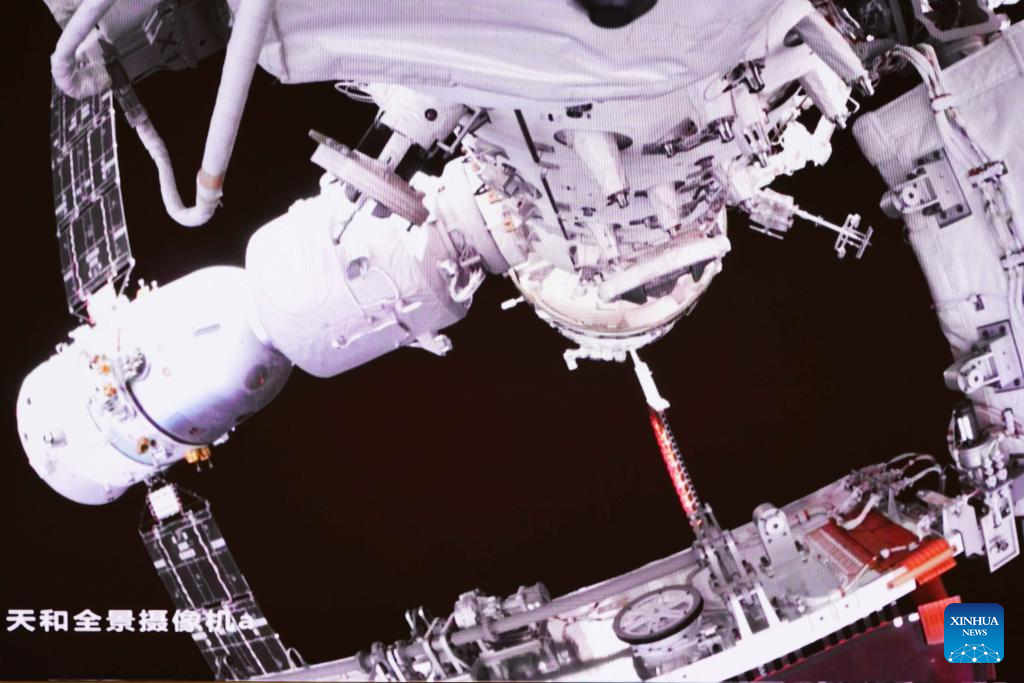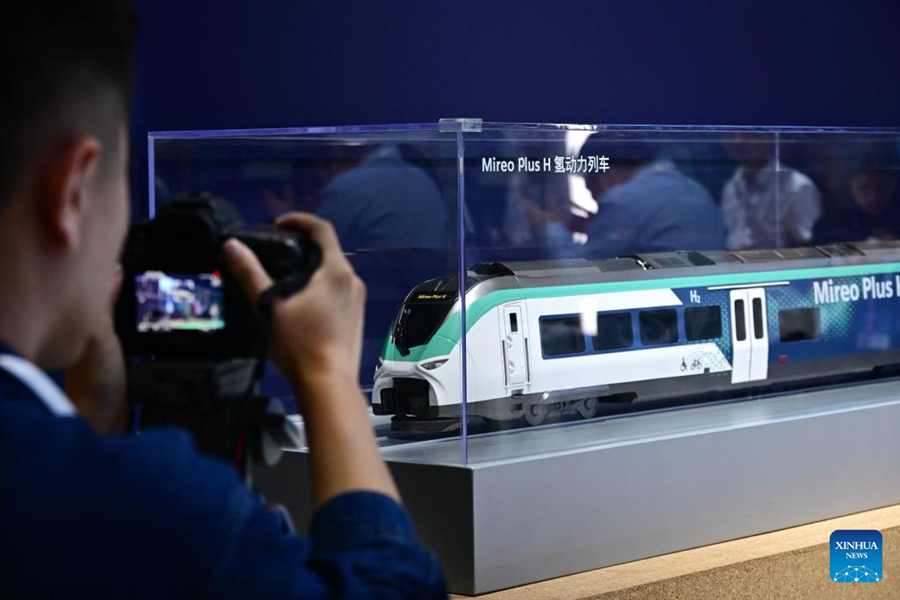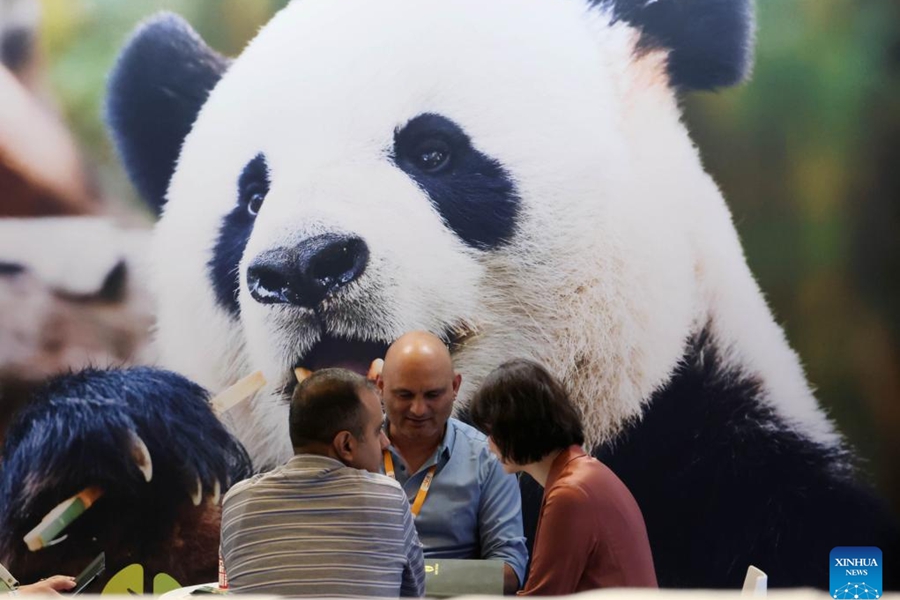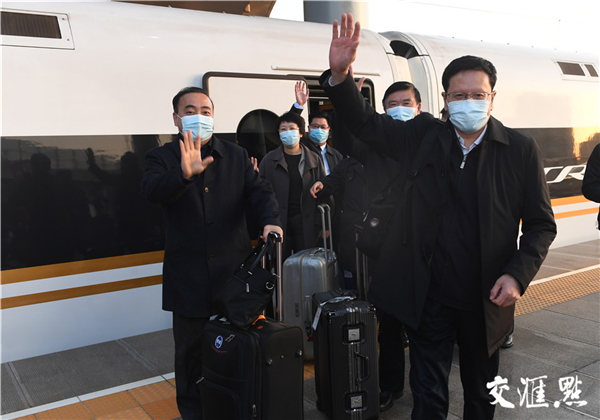
(Photo/Yu Ping)
Fifty-nine members of the 14th National Committee of the Chinese People's Political Consultative Conference (CPPCC) from Jiangsu Province have arrived in Beijing to attend its first session.
2023 marks the first year of comprehensive implementation of the spirit of the 20th CPC National Congress. It is of special importance to hold the first session of the 14th CPPCC National Committee. Against this background, members said that they will closely focus on the major decisions and deployments of the Party and the country in making suggestions and proposals and strive to contribute to the building of modern socialist country in all respects.
During the first session, members will listen to and deliberate on the report on the work of the CPPCC Standing Committee and the report on the work of proposals. They will also deliberate and adopt a draft amendment to the CPPCC Charter, vote to elect the chairperson, vice-chairpersons, secretary-general, and standing committee members of the 14th CPPCC National Committee. Members will also attend the first session of the 14th National People's Congress, and listen to and discuss the government work report, among others.
Jiang Pengju, vice mayor of Changzhou City, said his studies show that provinces, cities and districts have all introduced pro-innovation policies in building the regional S&T innovation center. However, he also noted some gaps and problems in building these centers when compared with international counterparts. He called for efforts to create a multi-level innovation ecosystem, improve resource allocation, and avoid homogeneous competition.
Liu Hong, vice mayor of Nantong City, has prepared two proposals on strengthening the agricultural technology promotion at the grassroots level and enhancing the policy support for the construction of high-standard farmland.
To prepare for the session, Cao Junli, vice president of Xuzhou Medical University, has recently conducted research in several community hospitals. Cao has suggested to improve the capacity of community health services so that patients can have easy access to quality medical resources near the neighbourhood.
In last year, Shi Daning, vice president of Nanjing University of Aeronautics and Astronautics, proposed to strengthen the training of nursing staff who can look after infants and toddlers. His new proposal this year focused on speeding up the training of geriatric medicine professionals and advancing the elderly-care system. "China's geriatricians training is still underdeveloped. I think it should be included in the national list of key disciplines, and in this regard, academic programs should also be strengthened," Shi said.
In the view of Gao Jinfeng, president of the Experimental Primary School Education Group in Jiangyan District, Taizhou City, the student performance assessment should encourage children to stay positive, noting that "students are different but that does not distinguish good from bad."
On the high-speed train to Beijing, Song Qing, chief of the Humanities and Social Sciences Division of Suzhou University of Science and Technology, said she has been committed to promoting the low-carbon development and the Beautiful China Initiative. For this session, Song prepared a proposal on promoting the modernization of ecological and environmental governance.
Shi Weidong, president of Nantong University, has continued to pay close attention to education. Furthermore, he has 20 proposals and reports ready on a wide range of issues including management of healthcare security fund and utilization of agricultural waste.


